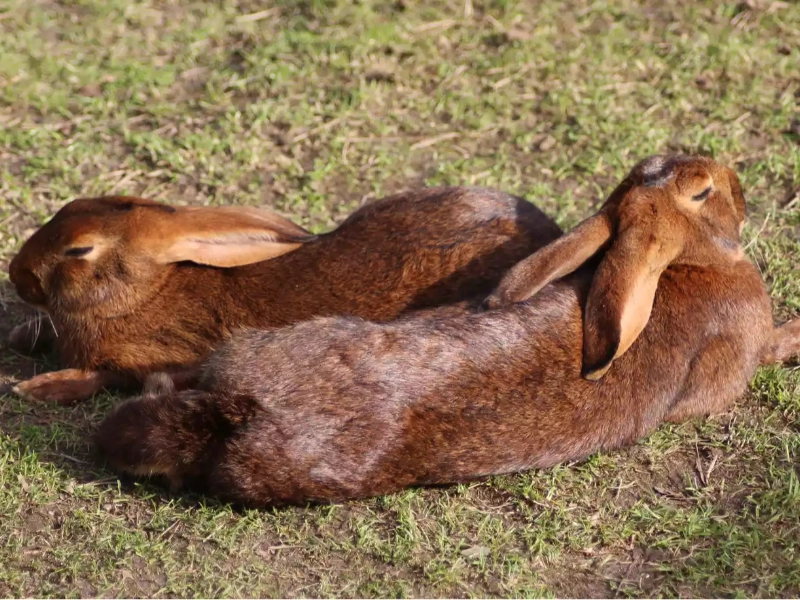5. The Belgian Hare: A Regal Rabbit with a Misleading Name

Despite its name, the Belgian Hare is not a true hare but a domestic rabbit breed carefully developed to resemble wild hares. Often dubbed the "poor man's racehorse," this remarkable breed showcases the skill and dedication of rabbit breeders who crafted a domestic rabbit with the grace and appearance of its wild counterparts. Typically weighing between six and nine pounds, the Belgian Hare stands out with its sleek, lean body. Its notably long ears and even longer hind feet enhance its slender frame, creating a distinctly hare-like silhouette that sets it apart from many other rabbit breeds. The Belgian Hare's coloration amplifies its wild appearance, with coats ranging from deep black to rich chestnut red. Combined with their toned, muscular build, this color palette evokes the image of a rabbit ready to sprint across vast fields at a moment's notice. Originating in Belgium in the early 1700s, breeders embarked on the meticulous task of selecting and breeding domestic rabbits to mimic wild hares. Their success was so profound that, after being introduced to the United States in the mid-1800s, Belgian Hares quickly gained acclaim among show breeders and rabbit enthusiasts alike. Beyond their striking looks, Belgian Hares are renowned for their intelligence. This cognitive sharpness makes them engaging and interactive pets, not just for their appearance but for their mental acuity. Their clever nature allows for easier training compared to some other rabbit breeds, and they often form strong bonds with their human owners. This intelligence also demands mental stimulation, making Belgian Hares ideal for owners who enjoy interacting with their pets and providing enriching activities. Mirroring their appearance, the Belgian Hare's personality is distinctive. Generally friendly and capable of forming deep connections with their owners, these rabbits can sometimes exhibit high energy and playfulness that might be mistaken for nervousness. When given space to run and play, Belgian Hares display astonishing bursts of speed and agility, thriving on exercise and mental challenges. Their need for activity makes them well-suited to large enclosures or supervised free-roam time in a rabbit-proofed area. While Belgian Hares make wonderful companions, potential owners should be mindful of their occasionally skittish demeanor. Bred to resemble wild hares, they may startle easily if approached too quickly or handled roughly. Due to this trait, Belgian Hares may not be ideal for very young children or bustling households. However, with patient and gentle handling, most Belgian Hares can become comfortable and trusting with their human families. One advantage of the Belgian Hare as a pet is its relatively low grooming needs. Their short, glossy coats require minimal maintenance, making them a suitable choice for owners who prefer a rabbit without daily grooming demands. A weekly brushing with a soft brush is typically enough to keep their coat in excellent condition and remove loose fur. This ease of care, paired with their striking appearance, makes Belgian Hares appealing to both novice and experienced rabbit owners. Ultimately, the Belgian Hare stands as a unique and captivating breed in the world of domestic rabbits. Its hare-like appearance, combined with the intelligence and companionship of a house rabbit, offers the best of both worlds. While their energy levels and occasional skittishness may require some adjustment, owners who provide the right environment and handling will find in the Belgian Hare a fascinating and rewarding companion. More than three centuries after their creation, Belgian Hares continue to enchant rabbit lovers, whether cherished as interactive pets or prized show animals.

